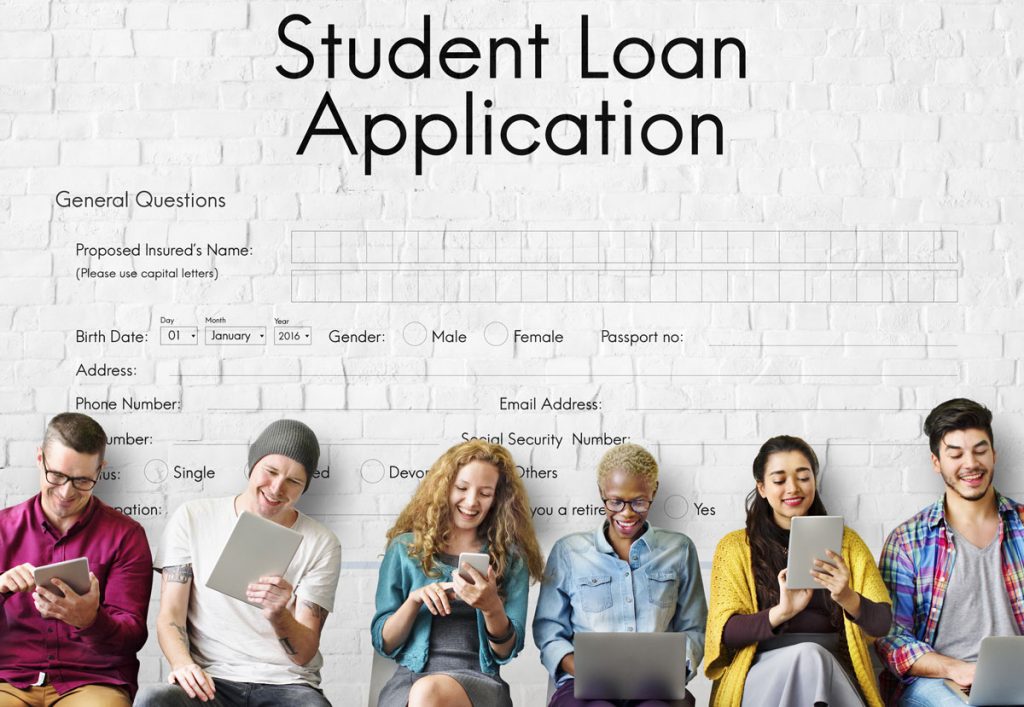Planning on starting school soon but worried about your student loan? If you've only recently applied, you may be wondering what your odds are. Does everyone get approved for student loans because it's such a positive goal to borrow money for? Or maybe they'll decline your application? Read on to find out the answers - as we've taken the time to research these very questions.

Although student loans are prevalent and may be easier to obtain than other types of unsecured loans, not everyone will qualify for or be approved for student loans. Requirements differ depending upon whether you are seeking a federal loan or private loan.
A credit check is not required for most federal student loans, according to Sallie Mae. Federal loans do have other qualifications depending on the loan. In general, however, you must be a U.S. citizen or eligible noncitizen, have a Social Security number, enroll in an eligible school for at least half-time, have at least a high school diploma or GED and maintain a college GPA of at least 2.0. You must also have filled out a Free Application for Federal Student Aid and be in good standing with any other federal loans you may have.
Three main types of federal loans exist and each carries specific additional requirements, according to Sallie Mae. The first type is a direct subsidized loan, which requires that you demonstrate financial need. The second is a direct unsubsidized loan, which is not based on need. For these unsubsidized loans, you may only borrow what your school determines based on the cost of attendance and other financial aid you receive. Both the direct subsidized and direct unsubsidized loans are for undergraduate students. The third type of loan, DirectPLUS, is for graduate students or parents of a dependent student. PLUS loans require suitable credit.
Private loans typically require a minimum credit score that varies depending upon the lender. Most lenders also require that you be of legal age, attend an eligible school, and be able to meet income and employment criteria. Most four-year colleges are considered eligible schools, but two-year schools often are not considered eligible by most lenders. You must also provide information on your expected costs and other financial aid you expect to receive. If you can't meet income, credit or employment requirements, but still need a loan from a private bank, you would need a co-signer who agrees to share the responsibility of repaying your loan. Even if you can be approved for the loan without a co-signer, you may want to add one to obtain a lower interest rate, according to Nitro. Private lenders will offer different interest rates and payment plans; shopping around is important to ensure the best deal possible.
What does your credit score have to be to get a student loan?
That depends on what type of loan you are seeking
If you meet the qualifications for a federal direct subsidized or unsubsidized loan, your credit score is irrelevant. For PLUS loans, the credit score itself is not important, but, with some exceptions, you must not have an adverse credit history. An adverse credit history is one in which
- There is a current delinquency of 90 or more days on more than $2,085 in total debt; or
- More than $2,085 in total debt in collections or charged off in the past two years (before the date of the credit report); or
- A default, bankruptcy discharge, foreclosure, repossession, tax lien, wage garnishment, or write-off of federal student loan debt in the past five years (before the date of the credit report).
For private student loans, the required credit score will vary among lenders. Typically, however, your score should be at least in the mid-600s. A score in the 700s or higher may qualify you for loans at a lower interest rate. In addition to credit scores, private lenders also require proof of steady income and a low ratio of other debts relative to income. If you lack the credit scores or income to qualify for a loan on your own, consider a co-signer.
Can I get a student loan if my parents make a lot of money?
Yes. The only time parental income is applicable is if you are a dependent student applying for a direct subsidized federal loan. If you are a dependent student applying for an unsubsidized federal loan or a private loan, a high parental income does not disqualify you. Even for a subsidized federal loan, parental income is unimportant if you are classified as an independent student. Although the rules are not hard and fast, generally an independent student is one who is older than 24 or married, serving in or a veteran of the military or has children who receive at least half of their support from the student. Someone who has been declared an emancipated minor also is classified as independent.
Can I get a student loan without my parents?
Maybe. This depends upon several factors including your age, the type of loan and whether you are an independent or dependent student. For federal loans, dependent students must include parental tax and income information on their FAFSA even if they will be paying the loan themselves. For private loans, you can obtain a loan on your own if you meet all the requirements, including age, credit, and income. If you are unable to meet all the requirements but are of legal age, you may still obtain a private loan without your parents if another creditworthy individual is willing to co-sign the loan for you. Even if you are able to qualify without a co-signer you may choose to have a co-signer -- a parent or another individual -- to obtain a lower interest rate.
Can I get a student loan for my child with bad credit?
Maybe. It depends upon several factors including the type of loan and how bad your credit is. Federal PLUS loans for parents require a credit check but a low credit score by itself will not cause you to be turned down. Only those with an adverse credit history will be turned down for bad credit. That means current delinquency of 90 days or more on a debt of $2,085 or more; or more than $2,085 in total debt in collections or charged off in the past two years; or bankruptcy or similar event within the last five years. Even then, the PLUS loan can be obtained with an endorser or if you can document extenuating circumstances, according to the U.S. Department of Education's Federal Student Aid website.
Another approach to obtaining a loan with bad credit would be to support your child's application for a direct federal loan, either subsidized or unsubsidized, by providing documents for the FAFSA. These loans, which are made in the name of your child, do not require a credit check.
Finally, if you still need additional funds, a private loan, though more difficult to obtain with bad credit, isn't out of the question. A co-signer could improve the possibilities of approval.



